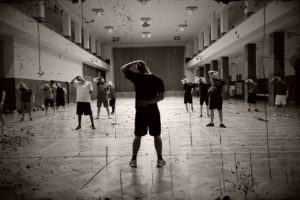It’s terrible, especially when you realize that the longer you stay “idle” at home, the more likely you are to gain weight. As a coach, I’ve dealt with injuries – and I’ve talked about some of them myself. And here are the simple tips on how to overcome injury in exercise training.
Get Enough Sleep and Rest
Sleep helps you consume fewer calories, increase productivity, avoid the risk of stroke, and help you overcome injuries. It is useful if you have a good sleep at night. It makes you more productive the next day.

Don’t Do an Intense Workout
Over-training deprives your body of the opportunity to do so. According to studies, signs over-training are fatigue, increased blood pressure, sleep deprivation, and depression. So to overcome over-training, first of all, as a newbie, you shouldn’t overexert yourself. I see that many new clients are very enthusiastic about what they can accomplish in a short period, and I suppose they can handle a week’s training of five or even six days just like that.
Cross-training can be one of the ways athletes can prevent injuries and overcome over-training. It means standing between cardio and weight training. Instead of lifting weights for five weeks or more, do your fitness program to increase strength, crack to lift muscles that are important in addition to your muscle load, and then do lifting three times.
I like to swim, but when I’m not in the mood or when it’s cold, I do things like running and cycling. It makes things more exciting, and I encourage you to do the same.
Eat and Drink Healthy
It is necessary to increase the intake of muscle protein and restore the balance of glycogen. That’s why nutrition experts recommend the consumption of carbohydrates, especially if you are preparing for endurance and a protein per kilogram in your body after training.
Ask a Question Before Training
There are coaches and observers in the gym, so ask a specialist to help you create your goal plan and show you how to do it. Don’t be in a hurry to improve your fitness. You may be one step away from choosing a workout, pulling muscles upwards. These things make you think it will take longer.
Always Do Warm-Up Before Exercise

I’m a runner, so I do this every day. That’s why you need to stretch your muscles so that blood can flow through your body, loosen muscle fibers, and improve your range of movement, which means you become less vulnerable and more elastic.
Cool Down After Workout
If you have spent about 45 minutes, so why not spend another five minutes to cool down to prevent increases in your body temperature and heart rate to speed up the muscle repair process and to avoid acidosis. Cooling down will eliminate any dizziness and stiffness you may feel after a workout. It will make your body recover, and you will not feel tired.

